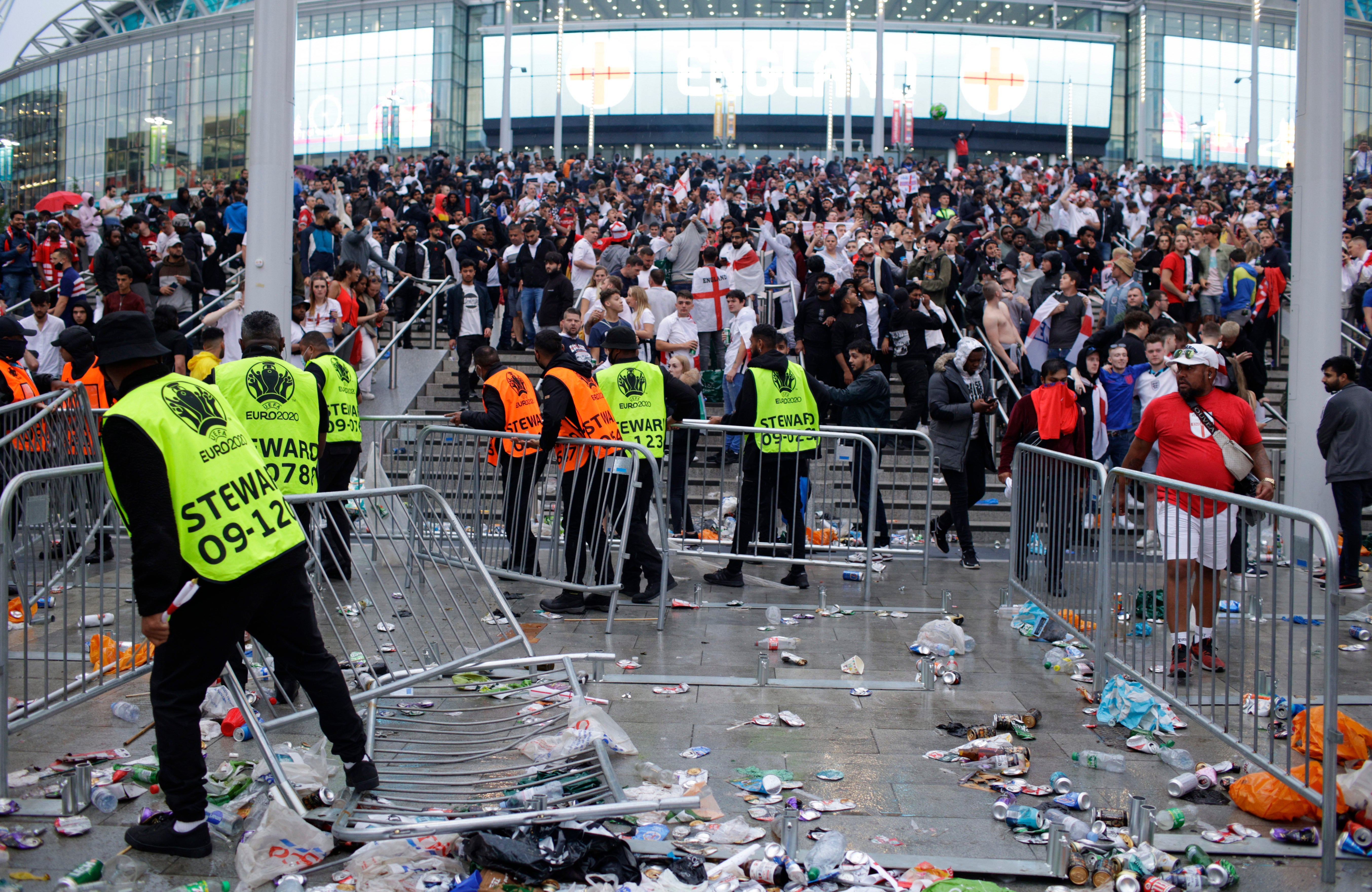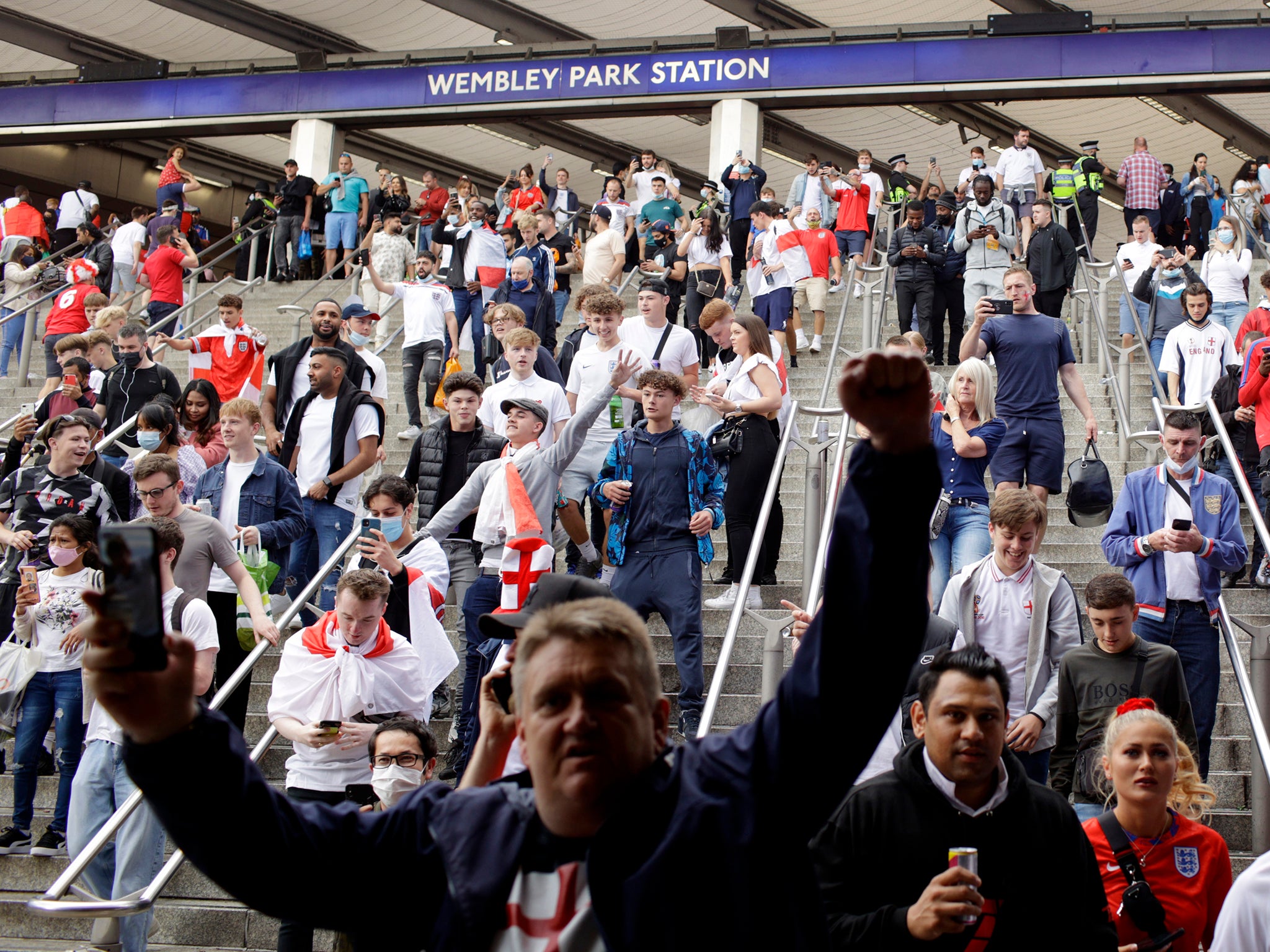Police call for cocaine users to be banned from football matches after Euros mayhem
Exclusive: ‘Cocaine use is yet to be addressed in football,’ expert warns after worst tournament for crime
Your support helps us to tell the story
From reproductive rights to climate change to Big Tech, The Independent is on the ground when the story is developing. Whether it's investigating the financials of Elon Musk's pro-Trump PAC or producing our latest documentary, 'The A Word', which shines a light on the American women fighting for reproductive rights, we know how important it is to parse out the facts from the messaging.
At such a critical moment in US history, we need reporters on the ground. Your donation allows us to keep sending journalists to speak to both sides of the story.
The Independent is trusted by Americans across the entire political spectrum. And unlike many other quality news outlets, we choose not to lock Americans out of our reporting and analysis with paywalls. We believe quality journalism should be available to everyone, paid for by those who can afford it.
Your support makes all the difference.Police want the power to ban football fans who take cocaine at matches, over concerns that the drug could be driving disorder and violence.
Some England supporters were filmed openly snorting white powder at Wembley and elsewhere in London during the Euro 2020 final, which saw large numbers of ticketless people force their way into the stadium.
Cheshire Constabulary chief constable Mark Roberts, who is the national lead for football policing, told The Independent he was seeking changes that would allow police to impose Football Banning Orders for drug possession.
He said cocaine use was “prevalent” among football fans and had been recognised as a problem by police at stadiums for years.
“Football reflects the increased use of cocaine in wider society but it can drive some of the negative behaviour,” Mr Roberts added.
“Football Banning Order legislation currently specifies issues relating to alcohol misuse, and we would very much like to bring that up to date with drug usage and make that a trigger in the same way.”
The law allows bans to be imposed if people have been convicted of specific offences and the move would prevent violence or disorder.
Relevant offences include the “possession of alcohol or being drunk while entering/trying to enter a ground”, but there is no equivalent provision for drugs.
Mr Roberts said changing the law “would be useful and reflect some practicalities of what we are seeing”, adding: “It is time for us to review how contemporary some of the Football Banning Order legislation is, because time has moved on and it’s appropriate to review it and check it’s fit for purpose.”
Labour is supporting the call, following reports of people in football crowds “brazenly taking drugs and causing mayhem” during the Euros.
“The law should be changed to keep pace with the real world – and reflect what is causing and contributing to disorder,” said the shadow home secretary, Nick Thomas-Symonds. “That should include the use of all illegal drugs when it comes to Football Banning Orders.”
In the wake of a tide of racist abuse targeted at England footballers following their loss to Italy, Boris Johnson announced the laws would be extended so online abusers can be banned from stadiums for up to 10 years.

The Home Office said the legislation was “kept under constant review” but would not say if it was considering Mr Roberts’s call on drugs.
A behavioural expert questioned whether cocaine use may have played a key role in the chaos at Wembley on the day of the Euro 2020 final.
Thousands of fans without tickets descended on the stadium and an unknown number forced their way in, clashing violently with stewards and police, after hours of drinking and raucous celebrations.
Disorder was reported across the country in town centres and fan zones, at the end of the worst football tournament on record for crime.
Dr Martha Newson, an anthropologist at the University of Kent who specialises in football fandoms, said that “cocaine culture” was growing.
Cocaine use is yet to be addressed in football
“Alcohol was certainly a central element at Wembley on Sunday, but we also need to consider the role cocaine might have had,” she told The Independent.
“My recent research shows that cocaine use among fans is associated with more fan disorder and violence.
“To sustain a day of drinking and still have the energy and coordination to push through security late in the day would be unusual. For a decade or more, many hardcore fans have used cocaine to maintain their energy in a way that alcohol cannot. Cocaine use is yet to be addressed in football.”
Dr Newson published research in May that found self-reported cocaine use among football fans was higher than the national average.

Almost a third of those who took part in a survey said they had witnessed others taking the class A drug at matches in the past year and 6 per cent reported taking it themselves.
“Football fans may be a population where the aggressive outcomes associated with cocaine use are amplified,” the paper said.
“Cocaine use among football fans has already been associated with the construction of ‘hyper-masculine identities’ and associated aggression.
“Indeed, cocaine has become an element of ‘lad’ culture and, alongside alcohol, fuels competitiveness and aggression from travel to a match, until well after it is finished.”
The research found that football fans who felt “highly fused” to their fellow supporters and took cocaine were “particularly likely to report past aggression toward rivals”.
Dr Newson said it was not possible to say whether cocaine directly caused violence, because of the role of other factors including alcohol and intense social bonding.
But she added: “I think there’s a culture of it in football at the moment, just like there has been with alcohol.”
A Home Office spokesperson said: “Football-related violence and disorder of any kind will not be tolerated, which is why around 1,400 hooligans are currently barred from attending games under Football Banning Orders.
“The legislation is kept under constant review and this week the prime minister announced it would be extended so online abusers can be banned from stadiums for up to 10 years.
“Drugs devastate lives, ruin families and damage communities, which is why we are setting up a new cross-government drugs unit to tackle the issue.”
Breaching a Football Banning Order is a criminal offence, punishable by a maximum sentence of 6 months in prison or a fine of up to £10,000, or both.






Join our commenting forum
Join thought-provoking conversations, follow other Independent readers and see their replies
Comments